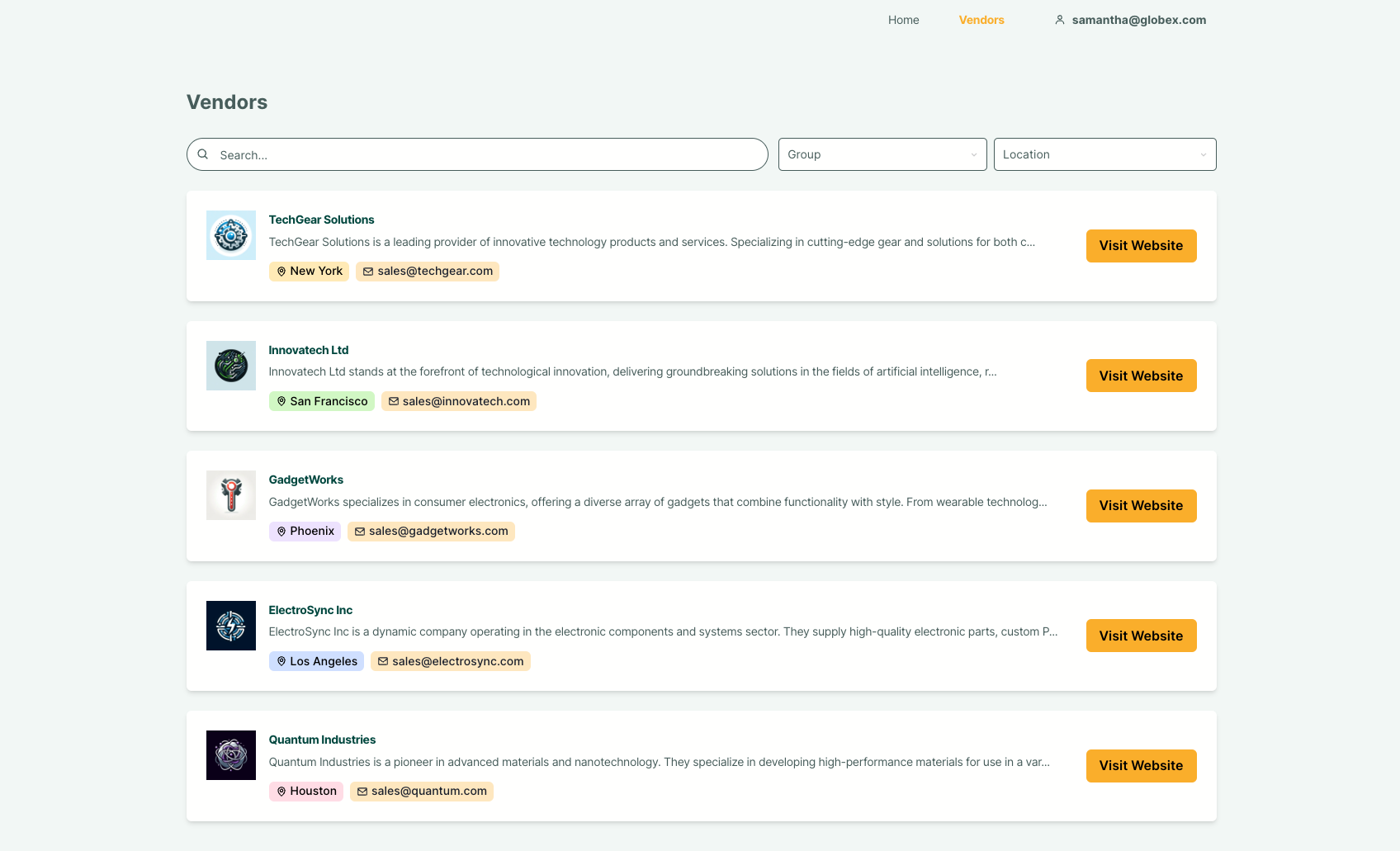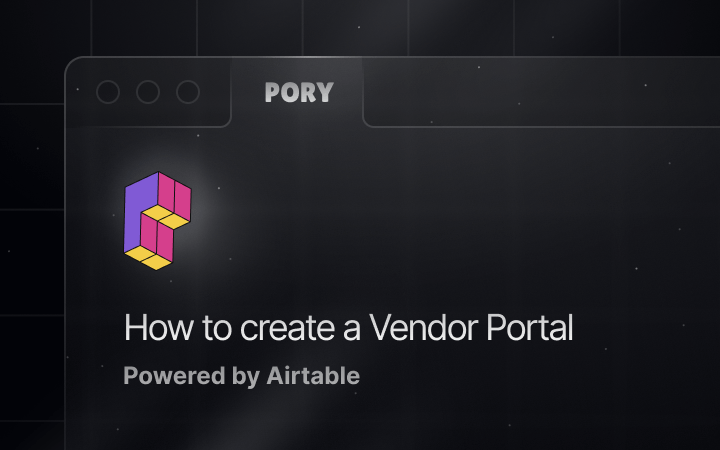Introduction
This tutorial demonstrates how to create a vendor (supplier) portal for "Globex Innovations," a fictional tech startup specializing in smart home devices. We'll use Airtable for managing product information and Pory to build the external portal for vendors to manage their catalog.
Why use Pory for building portals?
🔓 End users won't need to know or use Airtable.
💰 You won't need to purchase extra seats for users.
Prerequisites
- An Airtable account
- Professional plan subscription. Learn more about pricing.
- A table for users on Airtable with at least an email field (required for user accounts)
Objectives
- Employees can log into their account to view a directory of Vendors
- Vendors can log into their account to view, update and delete their products
- Vendors can log into their account to update their company information
Airtable Base
The Airtable includes 2 tables: Users and Products. You can copy this base into your account here.
It is important to store everyone who needs a user account in your portal in the Users table. I.e. Vendors and Staff members etc.
Pro Tip: To manage different groups of users in the Users table, we recommend creating a Single Select field called Groups to categorize users and then organizing each group with an Airtable View.
Step 1: User Management
The vendor portal will support two groups of users: Employees of Globex Innovations and the Vendors.
-
Let's start by setting up user accounts in the portal. Follow the instructions and enter Vendor for the default group (skip if you have enabled user accounts already).
-
Now let's create the Employee group.
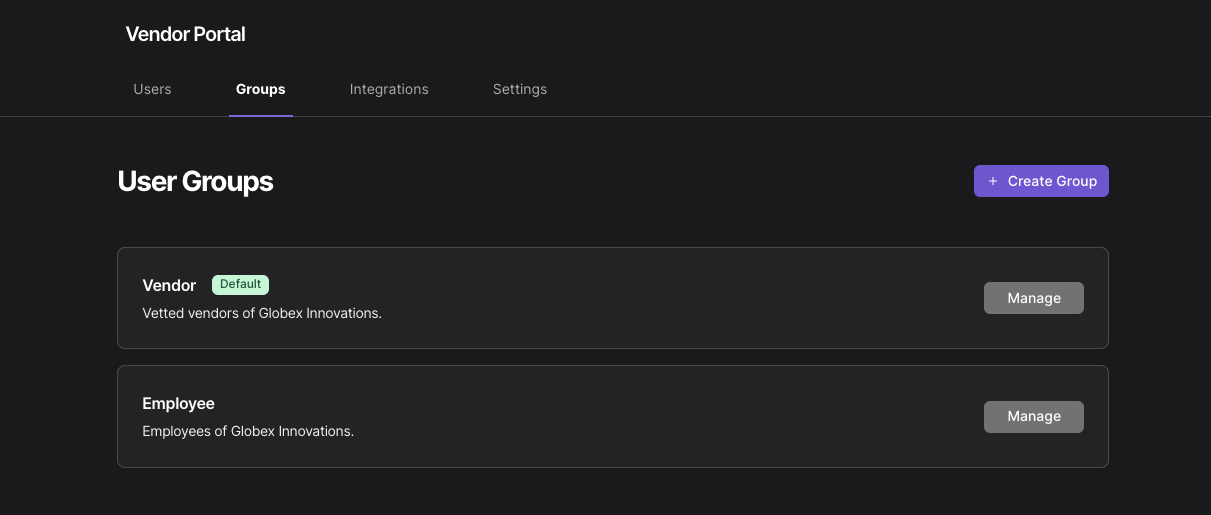
Step 2: Vendor Directory
Let's create a vendor directory for employees to access after logging in.
- In the portal editor, create a new page called Vendors. Make sure it is restricted to the User Groups Employee. This means only users who belong to this group can view the page.
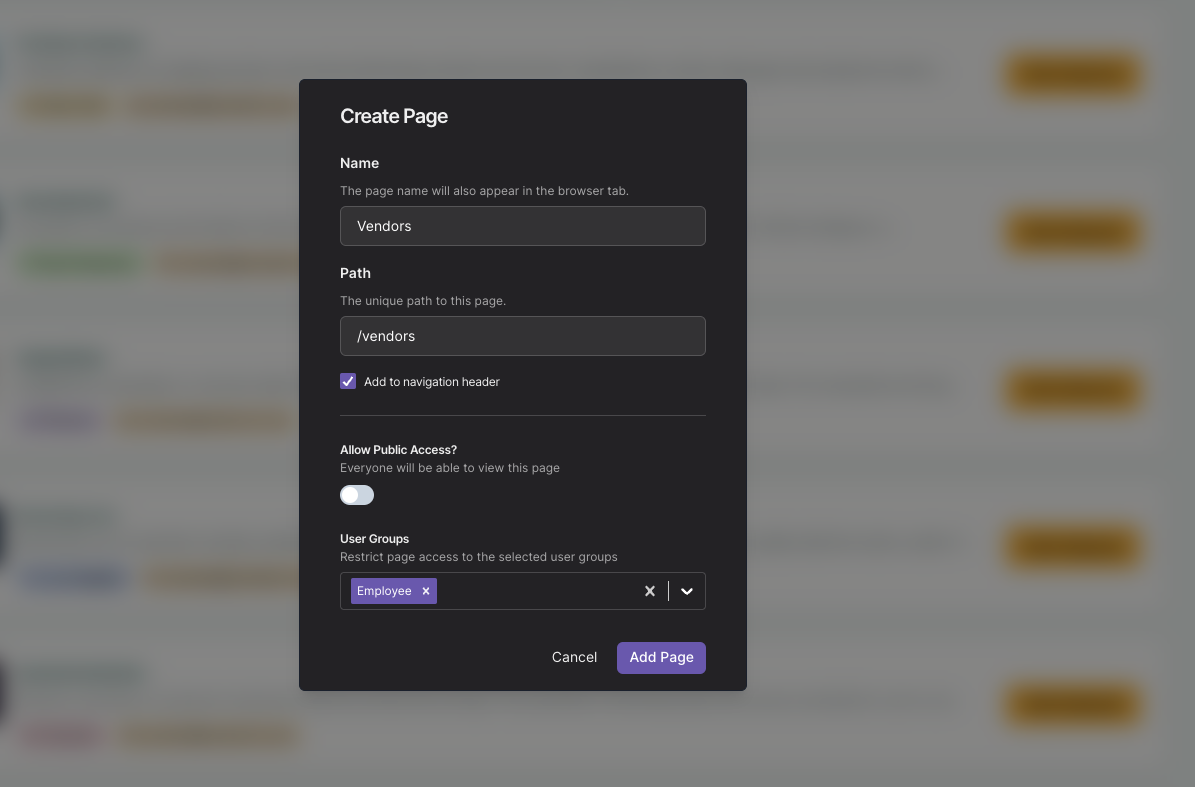
- Create a Airtable listing of vendors.
Is this a user listing?: No (All employees should be able to see this listing).
Airtable Base: Vendor Portal (You can copy the base above into your account).
Airtable Table: Users
Airtable View: Vendors (this is important as we do not want to see employees listed).
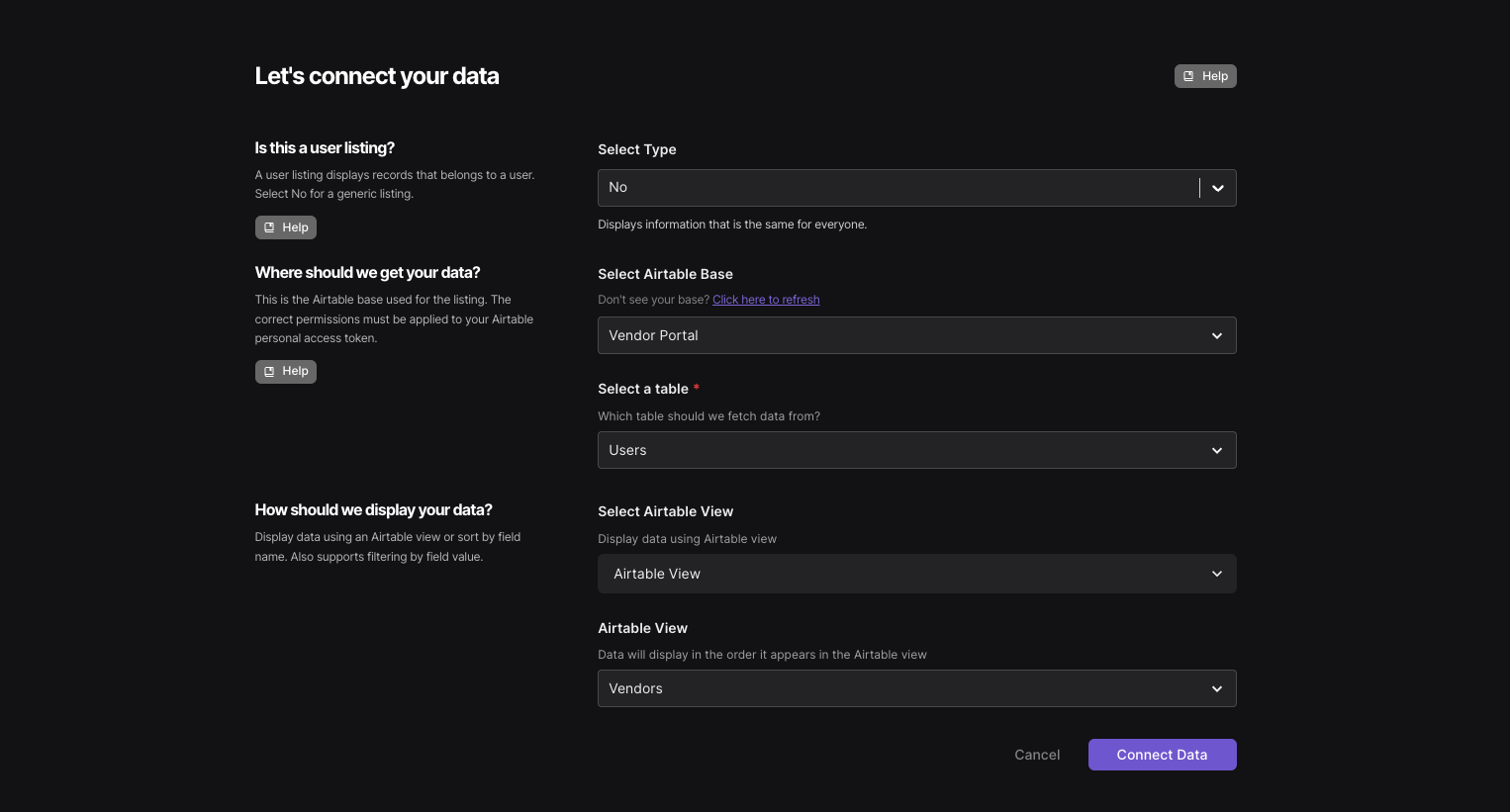
- Select the fields you would like to display in the listing, search and filters.
- Switch to the detailed view and add blocks to display more information.
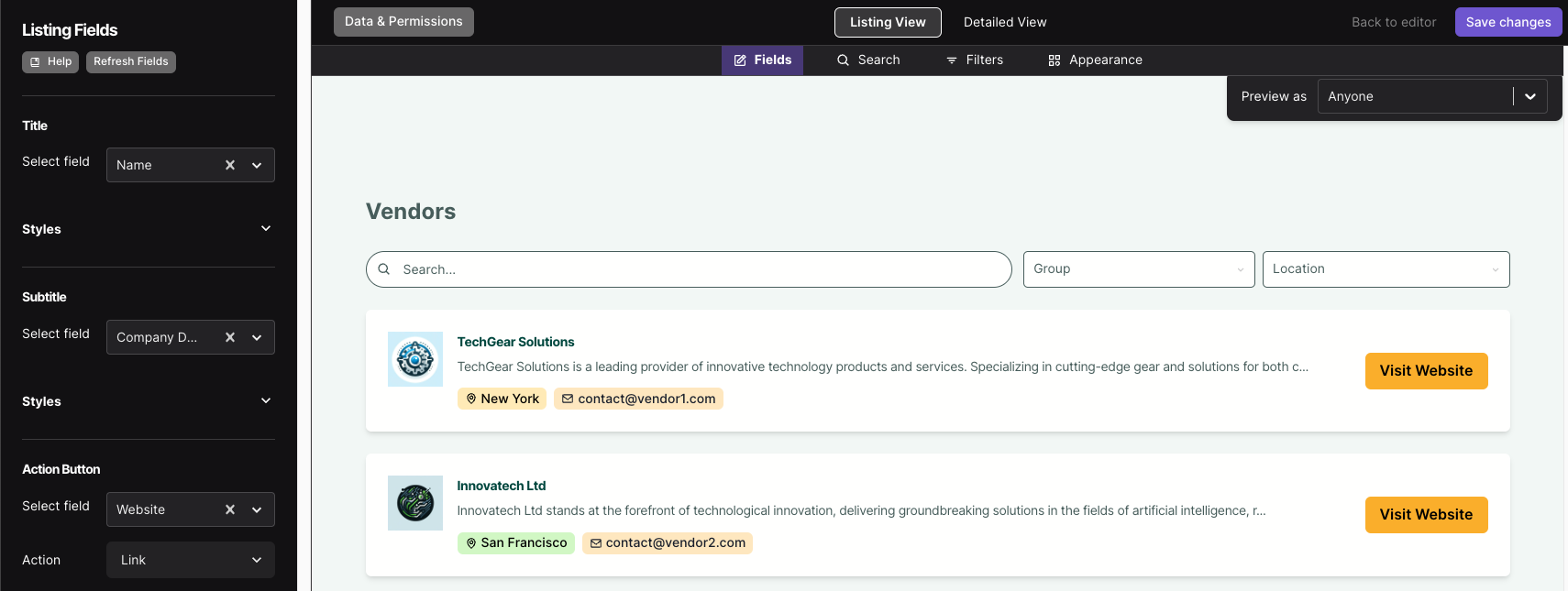
- When you're happy, click the Save Changes button
Check out the Vendor directory here.
Step 3: My Products Listing
Let's create a listing for vendors to manage their products. Vendors should only see their own products in the listing.
- In the portal editor, create a new page called My Products and restrict it to the user group Vendor.
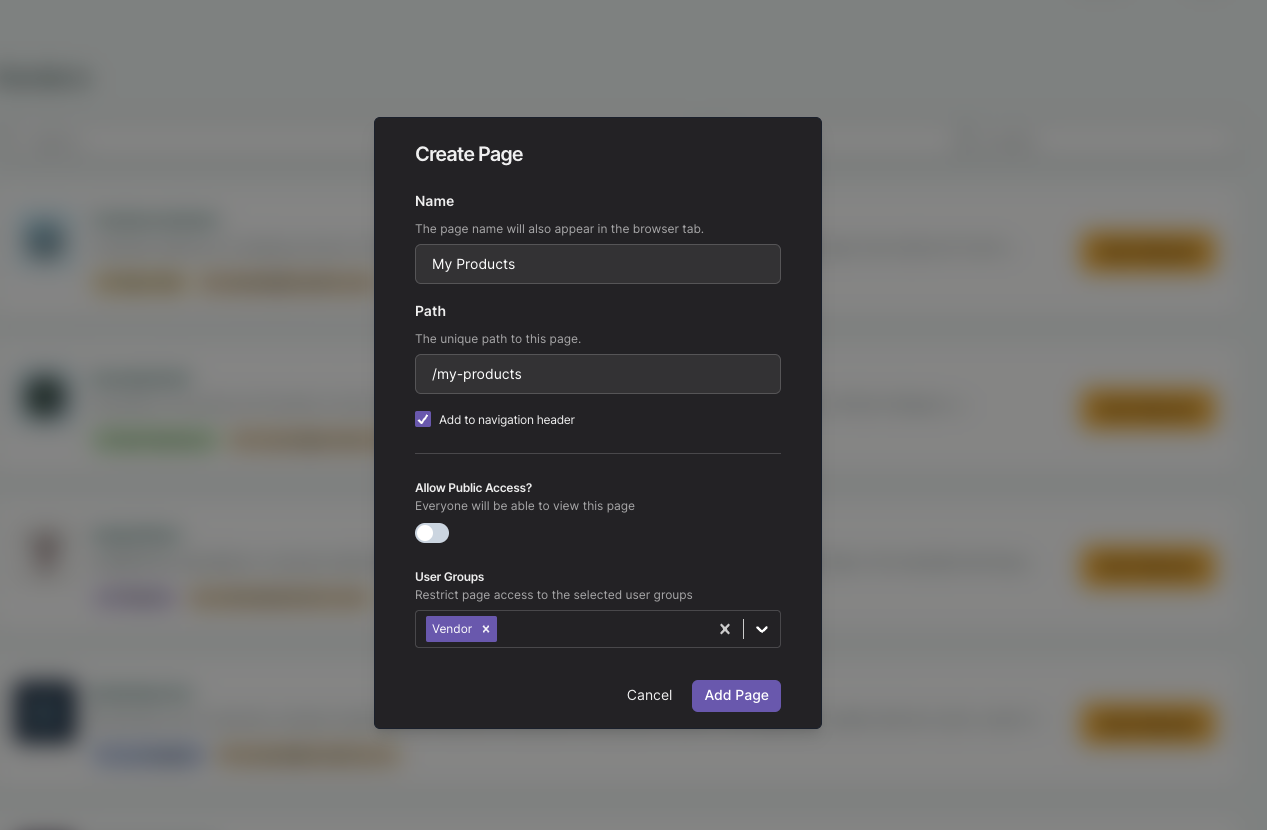
- Create a Airtable listing of products.
Is this a user listing?: Yes (Vendors should only see their own products).
Airtable Table: Products
Select Field: User Record -> Products (users will see records that are linked to them from the field Products). Airtable View: None.
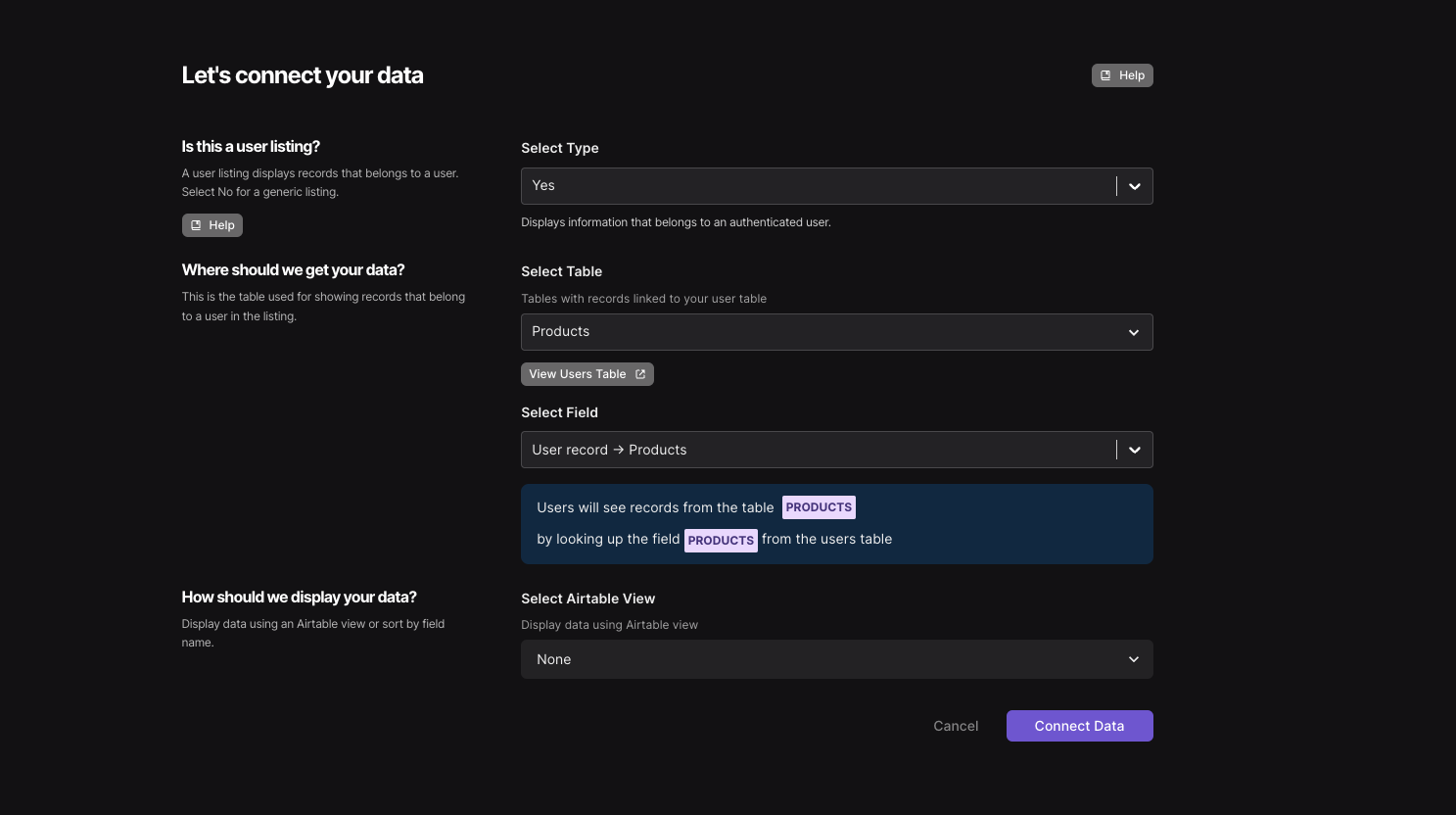
- Select the fields you would like to display in the listing, search and filters settings.
- Switch to the detailed view and add blocks to display more information.
- Click on Data & Permissions and update permissions for Vendor to include Edit, Create and Remove.
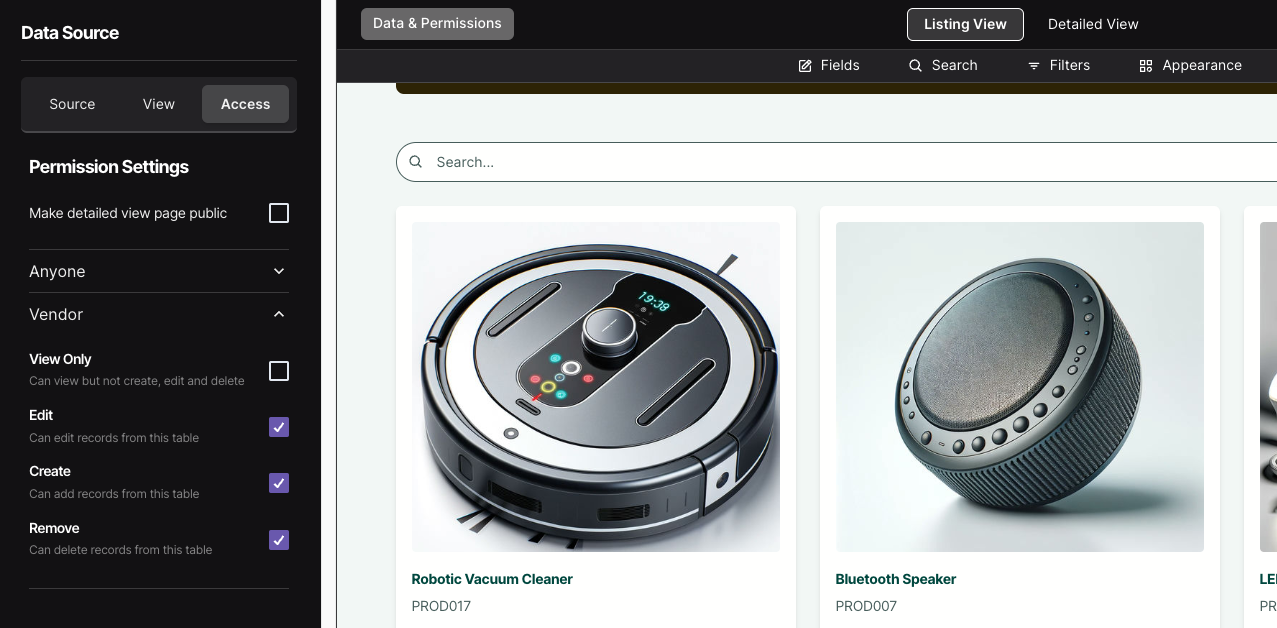
You can test out the permissions by Previewing as a user group.
Check out the My Products page here.
The ability to create, edit and delete products have been removed for the demo account.
To test these permissions, please create your own account in the portal by signing up.
Step 4: Account Management
Vendors and Employees can also log into their account and update their profile information. This is synced with their record stored in the Users table. To set this up, go to the Account page builder and select the fields to include in the profile page for each user group.
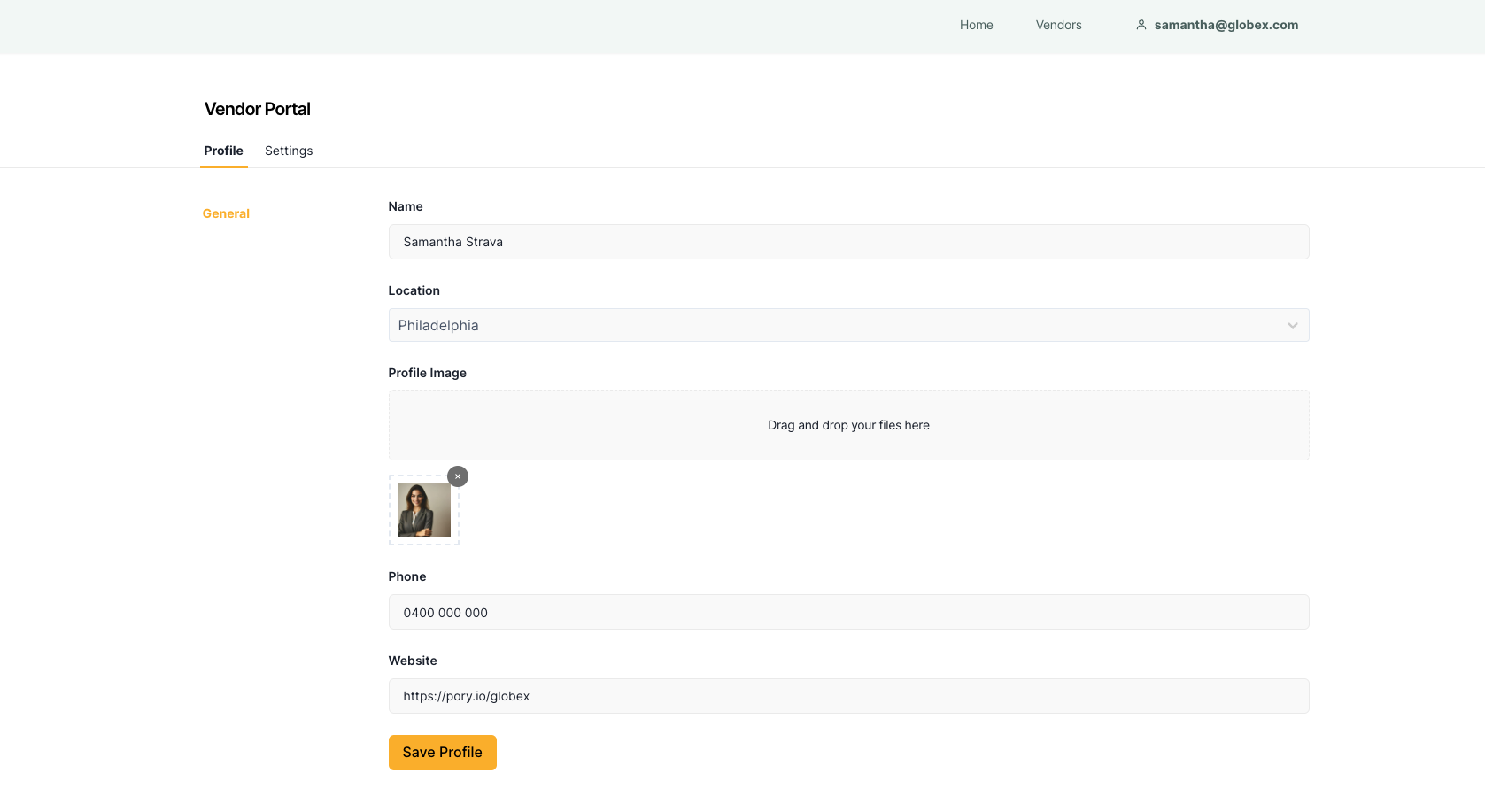
Step 5: Inviting Users
Pory supports inviting users to create accounts by either sending emails or generating invitation links using a formula on Airtable. You can also restrict sign up to people who only exists in the Users table.
Pro Tip: You can automatically assign users on account creation to groups using field values.
Demo time!
Check out the vendor portal by either logging in as an employee (credentials on log in page) or creating a new account as a vendor (default group).
Vendor Products
Users who belong to the group Vendor can now view, create and edit their own products from the My Products page.
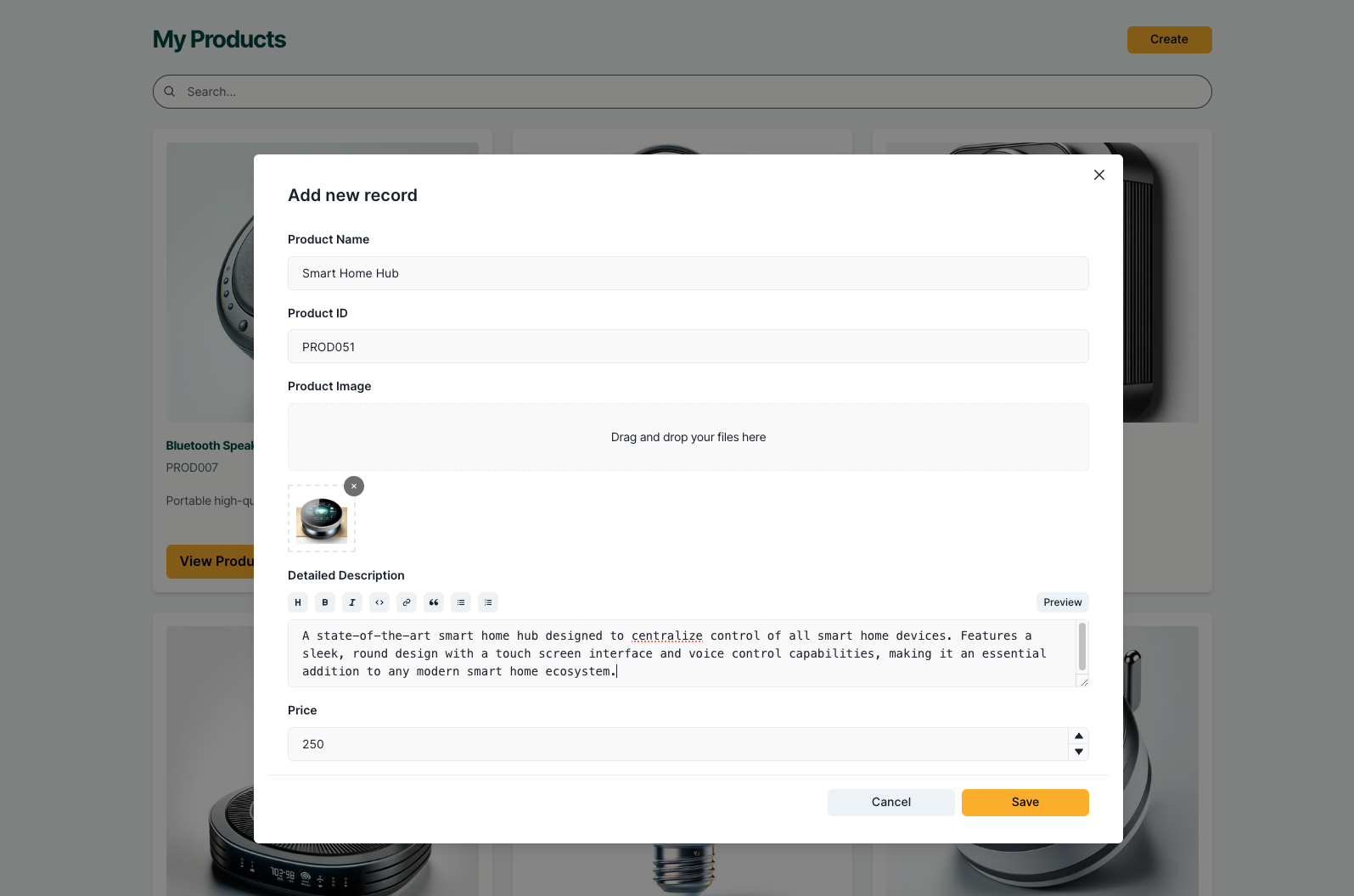
Vendor Directory
Users who belong to the group Employee can view a directory of all the Vendors.
